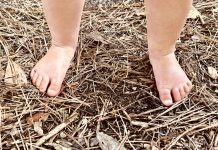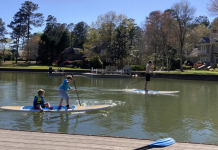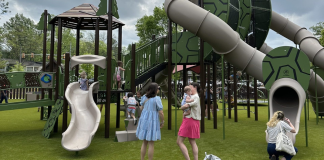 “When we think of ‘disabled Americans’ we need to remember that it’s more than just a few people in wheelchairs. It’s a very large and diverse community of people, who nevertheless share many common experiences of having disabilities and coping with the often difficult place disabled people occupy in society.” (Andrew Pulrange)
“When we think of ‘disabled Americans’ we need to remember that it’s more than just a few people in wheelchairs. It’s a very large and diverse community of people, who nevertheless share many common experiences of having disabilities and coping with the often difficult place disabled people occupy in society.” (Andrew Pulrange)
According to the CDC, one in four U. S adults have a disability that impacts primary life activities. That comes out to be around 61 million Americans! Seeing these numbers isn’t surprising at all. Nor is it shocking that in 2022 people still think that disability only refers to the physical appearance.
I am the mother of a gorgeous nineteen-year-old young adult that doesn’t fit the standard definition of a disabled person.
Parenting
My daughter looks like a typical teenager, but once you get to know her, you will pick up on something a bit different. (Her outer appearance has been a big worry for her dad and me.)
We noticed her delays at a very young age and immediately discussed it with our pediatrician at the time, Dr. Dina Winston. She scheduled the necessary specialist appointments to verify what was going on. She was then diagnosed with a learning disability; everything seems to work backward in her mind. Her diagnosis rocked our world and still plays a significant part in our everyday lives.
Parenting becomes advocacy when you have a child with a disability. Every day is a reminder that she is different, and we have to make sure she is safe no matter what. Parenting an adult like a child is hard because all parents want their children to have their personal liberties. Unfortunately, many parents don’t have the luxury to let our children be adults just because they are a certain age.
Society
Society makes it challenging to parent these adults because they look fine. The perception that these young adults can comprehend everything at their age level is an insult and keeps many of them in their shells. People with disabilities don’t need to be singled out or made to feel insecure when trying to be proactive citizens in society.
For example, my daughter works for a rehab facility. She had a job coach to assist her on the day of her interview. The hiring manager told her that she enjoyed meeting with her. She was professionally dressed and extremely polite. She was so excited to hear that she did well and was incredibly proud of being offered a position that day. Then, on her first day of orientation and training, one of the nurses blurted out in front of everyone, “Can you read”? My daughter, always being the respectable young lady she is, replied, “Yes, I can read.” My heart sank. I hurt for her. I was angry she had to go through that experience. Thankfully, I had already prepared her for the cruelty of the world.
Community
Diversity and inclusion efforts still have a long way to go for the disabled community. They are just like anyone else that needs love, kindness, and patience to make it through their day. When my family and I found out about my daughter’s diagnosis, we became her biggest cheerleaders! She has a solid support system. We’ve never allowed her to look at herself as being unimportant. We make sure she sees the unique person God made her to be.
My hope is for our communities is to make reasonable efforts to respect people with disabilities the same way they respect people without disabilities. I pray that we would provide more job opportunities by encouraging the disability community to participate in things that interest them. This will allow them to have a fair chance of achieving their life goals. I hope there will soon be more protection for the disability community so they will stop being viewed as easy targets for unfair treatment. Mostly, I hope that they will begin to have proper representation at every government level so their voices can be heard and their votes counted.











